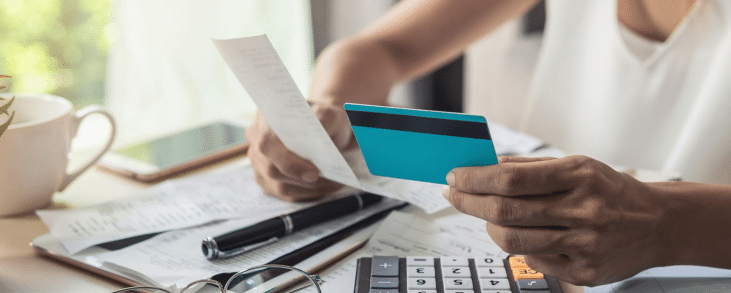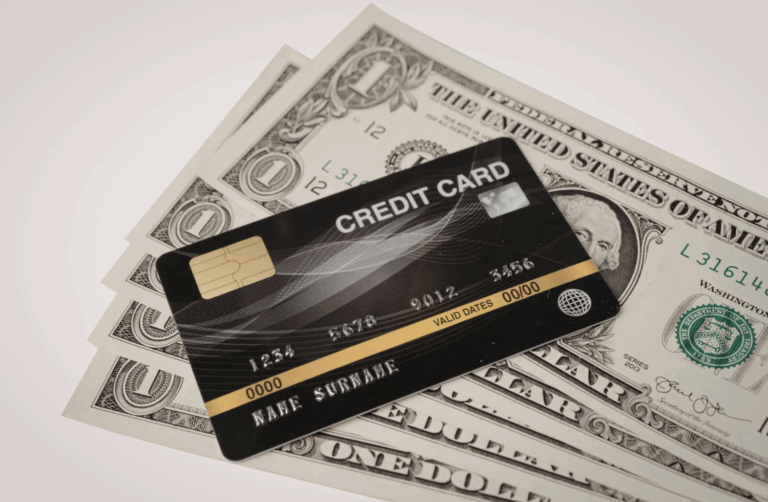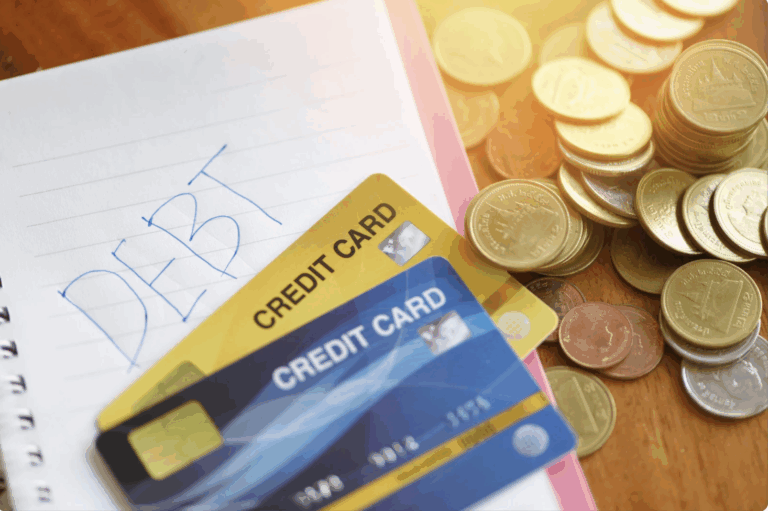Credit cards can be helpful tools for managing your cash flow and earning rewards. However, it’s also easy to rack up a big balance. According to the Federal Reserve, credit cards have some of the highest interest rates; the average is 14.51%. Meaning the more credit card debt you accumulate, the harder it becomes to pay it off, especially if you struggle to make more than the minimum payments.
In an ideal world, you could magically make that debt disappear and start over with a clean slate. While that’s realistically not going to happen, getting out of credit card debt without paying the whole balance is possible. Here’s how.
How to Get Out of Credit Card Debt Without Paying in Full
If you have more credit card debt than you can handle, there are several ways to get it under control. Below are a few options for getting rid of your credit card debt without having to pay it all.
Ask Your Creditors About Hardship Programs
If you’re having trouble making payments on your credit cards, your first step should be contacting your credit card issuer. First, explain your financial situation and why you cannot fully make your payments. Then ask to work out a modified repayment plan to help make those payments more affordable.
This might involve temporarily reducing the interest rate or lowering the payments until you’re back on your feet. You will likely have to pay your balance in full eventually, but this can give you a temporary break from your usual payments. Plus, you might end up paying fewer interest charges overall.
It’s important to contact your creditor ASAP. If you wait too long, late fees can rack up. Also, they may close and charge off your account, which can complicate matters. Look for their phone number on the back of your card or your account statement.
When speaking to representatives at credit card companies, be polite but persistent and take notes, so you have a record of the discussion. If the person you talk to isn’t helpful, ask for a superior and try again to explain your situation, and ask for ways in which they can assist you. Also, be sure to get any new agreements in writing.
Attempt to Settle Your Debt
If your credit card debt has grown so large that there’s no way you can realistically pay it back in full, and you are behind in your payments, settling may be an option.
Debt settlement means working out an agreement with your lender or creditor to pay a small percentage of what you owe. Usually, a creditor only agrees to this repayment plan if it’s clear that’s the most they’ll be able to collect from you. In other words, it’s usually not an option if you’ve been making your payments in full and on time. Part of the negotiation process involves delinquency, where you stop paying your credit card bills to encourage a deal. So know that your credit score can take a hit in the process.
It’s possible to negotiate a debt settlement on your own. However, you might find it helpful to hire a professional who can negotiate on your behalf. There can be many complications and details that you will not know to ask about. But it’s important to work with legitimate debt settlement companies, as there are scams out there. Be aware of the red flags, including companies that call and solicit you to settle your debt.
Consider hiring a debt settlement lawyer who is ethically bound to act in your best interest and is very experienced with the law in these matters. A lawyer can be beneficial if you’re being sued or already have a judgment against you. They can be your advocate to make sure your creditor is following the law.
Also, know that settling your debt doesn’t mean you’re entirely free and clear. Debt that a creditor forgives could be considered taxable income. The exception is if you are insolvent, meaning your total debt is more than the value of all your assets. That can be a complex situation to determine and working with the right debt settlement team can make all the difference. So, if you aren’t sure about the tax implications of debt settlement, be sure to speak with a tax or legal professional before pursuing it.
File for Bankruptcy
Another option that could result in having some or all of your debt wiped clean is bankruptcy. However, whether or not you need to pay your credit card balances and other debts in full will depend on the type of bankruptcy you qualify for.
For example, some borrowers qualify for Chapter 13 bankruptcy. This involves reorganizing your debts so that the monthly payments are more affordable. A payment plan is devised by the court that aims to have you pay off your debt in full within three to five years. This option is meant for people with enough income to pay back their debts under a modified plan and budget. Depending on your situation, you may or may not end up paying the entire balance owed.
On the other hand, if you face serious financial hardship, you might qualify for Chapter 7 bankruptcy. This is also known as liquidation bankruptcy because your assets can be sold off to pay back your creditors. Any remaining unsecured debt, such as credit cards or medical bills, gets discharged by the court. Some types of debt are much less likely to get forgiven, such as student loans and back taxes.
In both cases, your credit will drop significantly. Chapter 13 bankruptcy stays on your credit report for seven years, while Chapter 7 stays for 10. That can make it challenging to get approved for affordable loans in the future. It can also impact your ability to rent an apartment, open utility accounts, and more. In other words, like debt settlement, bankruptcy isn’t a “get out of jail free” card. It has serious long-term consequences. That said, if you’re already struggling to the point that your outstanding debt is unmanageable, those consequences may be worth it.
Other Ways to Get Your Debt Under Control
Keep in mind that the options above are ways to get out of credit card debt without paying the full balance. But there are other ways to manage burdensome credit card debt, even if it means paying everything back. These options can preserve your credit score and save you money on professional and court fees.
For example, you may be able to consolidate your credit card debt into a lower-interest personal loan. A debt consolidation loan allows you to combine your various bills into a single monthly loan payment that you pay off in installments over a set period. With a lower interest rate, more of your money goes toward paying the principal balance, helping you get rid of your debt faster. You do need a good credit score and work history to be considered for certain debt consolidation loans.
You could also consider working with a credit counselor to enter a debt management plan. These plans allow you to make a single payment that goes towards paying off various accounts. A nonprofit credit counseling agency can help you manage debt and negotiate affordable monthly payments with your creditors.
Clearly, you have a lot of choices when it comes to managing your credit card debt. And making the right choice comes down to many factors, such as the amount of your debt, how far behind you are, your current income and financial situation, and more. That’s why it can make sense to speak with a debt relief lawyer and find out what makes sense for you. We at Tayne Law Group are happy to help. We can provide you with a free, one-hour consultation to learn your options. Call us at (866) 890-7337 or fill out our short contact form.





